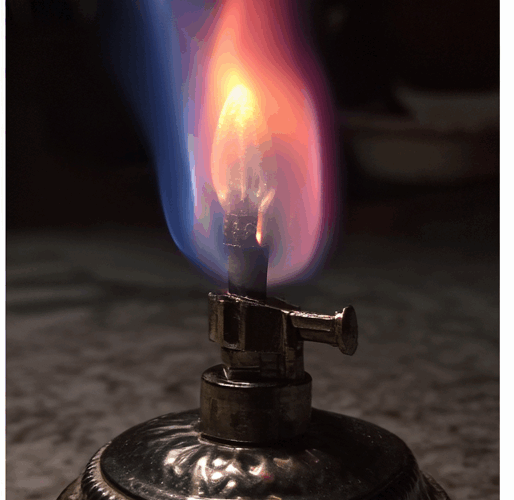Choosing the right heating device for your home is not just a matter of comfort, but also safety, energy efficiency and long-term operation. In recent years, more and more innovative and efficient heating solutions have appeared on the market, and burner units occupy an important place among them. They are responsible for the process of burning fuel and converting it into heat, which is then distributed throughout the premises. It is important to remember that the choice of unit directly affects how the heating system in your home will function, how economical and environmentally friendly the heating will be, and how long the equipment will last.
Types of Burner Units: Which One to Choose for Your Home
There are several types of burners, each suitable for different operating conditions and types of heating. The choice depends on the type of fuel available to you, the size and structure of your home, and your preferences for energy efficiency.
Gas burners are one of the most popular heating devices. They operate on natural or liquefied gas, which makes them convenient for use in homes connected to the central gas supply. Gas burners are highly efficient, durable, and environmentally friendly. Their downside may be their dependence on a stable gas supply, as well as the need for security systems.
Liquid fuel burners use various types of liquid fuel, such as diesel or oil, for their operation. They are ideal for country houses where there is no connection to the central gas supply, but there is an opportunity to use such types of fuel. Unlike gas devices, liquid fuel burners may require additional costs for delivery and storage of fuel, but in some cases they can be more cost-effective.
Solid fuel burners are designed to work with coal, firewood, pellets and other solid fuels. Such installations are especially popular in regions where gas and liquid fuel are unavailable or too expensive. The main advantages of such units are autonomy, fuel availability and ease of maintenance. However, they require more attention during operation, especially in terms of cleaning and control.
Depending on the type of fuel that will be used, it is important not only to choose the right unit, but also to take into account the features of its installation and operation. Before buying, it is worthwhile to accurately calculate which equipment will be most effective for your particular case.
The main criteria for choosing a burner: power, efficiency and safety
When choosing a burner unit, it is necessary to take into account several key factors that will ensure efficient and safe operation of the equipment.
Power — this is the most important criterion that determines the ability of the unit to maintain the required temperature in the room. To calculate the required power, you need to take into account the area of the room, thermal insulation, climatic conditions and even the number of windows. The larger the area of your house, the more powerful the burner should be. Incorrectly selected power can lead to overheating or insufficient heating.
Coefficient of performance (COP) — is an indicator of the efficiency of the unit. The higher the efficiency, the less fuel is required to obtain the desired temperature. High efficiency will provide fuel savings and lower operating costs, and will also reduce the burden on the environment due to lower emissions of harmful substances.
Safety — this is one of the most important aspects that should not be overlooked when choosing a burner. Modern devices are equipped with many protective systems: from automatic shutdown in case of overheating to a flame control system. It is especially important to pay attention to ventilation systems and the removal of combustion products. Poor ventilation can lead to the accumulation of carbon monoxide, which poses a health hazard.
Eco-friendliness — when choosing a burner, it is worth considering not only its efficiency, but also its impact on the environment. Modern gas or liquid fuel devices have a filtration system that reduces pollutant emissions. For more environmentally friendly solutions, it is worth choosing devices with minimal emissions of carbon dioxide and other harmful compounds.
The correct choice of the unit, taking into account these factors, will provide you with long-term, safe and economical operation. When buying, it is better to consult with professionals and order calculations for the optimal choice.
Installation and maintenance of burner units: step by step
Once you have selected the right unit, it is necessary to install it correctly and provide regular maintenance to maintain the durability and safety of the device. The installation of gas, liquid fuel and solid fuel burners may have its own characteristics, so it is always important to involve qualified specialists.
Checking and preparing the installation site. It is important that the burner installation site meets all safety requirements and is spacious enough for normal ventilation. This is especially important for gas units, where improper installation can lead to gas leaks. For liquid fuel and solid fuel units, it is also important to provide space for fuel storage.
Installation and connection of the system. After the installation site is prepared, the unit must be carefully connected to the fuel system, ventilation and heating system. Each unit requires specific adjustment and checking of all connections, especially when it comes to gas burners, where tightness must be carefully monitored.
Regular maintenance and cleaning. It is important to remember that after installation of the burner unit, regular maintenance must be carried out, including cleaning, checking the combustion system and filtering the air. For liquid fuel and solid fuel burners, frequent cleaning from soot and ash is especially important. For gas units, it is important to monitor the condition of the gas hoses and ventilation system.
Timely maintenance extends the life of the unit and improves its efficiency, preventing breakdowns and abnormal situations. It is important that all work is carried out by qualified specialists, as improper installation or maintenance can lead to dangerous consequences.
Energy saving and ecology: how to choose a burner taking into account new standards
Modern technologies require device manufacturers to increasingly strictly comply with environmental and energy efficiency standards. When choosing a burner, it is important to consider not only its power and price, but also its impact on the environment and cost-effectiveness.
For homes on a budget or those concerned about reducing heating costs, choosing a high-efficiency unit with a good COP can significantly reduce operating costs. These units use less fuel to heat the same area, resulting in reduced carbon emissions.
Eco-friendliness is also important, as modern burners with filters and emission control systems reduce the harmful impact on the atmosphere. When installing such devices, it is also important to take into account the legislative requirements in your region regarding emission standards. It is best to choose devices that comply with European environmental standards, as they provide the smallest carbon footprint and minimize air pollution.
Technical characteristics and their impact on operation: what is important to know
When choosing a burner, it is very important to understand how its technical characteristics affect everyday use. Not only the efficiency, but also the durability of the device depend on these parameters.
Fuel type — this is the main parameter that directly affects the choice of burner. Gas units have their advantages in terms of clean combustion and lower emissions, but for regions where there is no gas connection, other options may be suitable.
Control system – modern burners are equipped with intelligent control systems that automatically regulate the operation of the device. These systems make the units convenient to use and increase their durability.
Materials of manufacture – the strength and durability of the burner largely depend on the materials from which it is made. High-quality materials, such as stainless steel, will ensure a long service life and resistance to corrosion.
Warranty and service – it is also important to pay attention to the warranty conditions and the availability of service centers. The manufacturer’s warranty and support can play an important role if the unit breaks down in the first years of operation.
Choosing a burner unit is not just buying a device, but an important step in organizing high-quality heating of your home. By approaching this issue wisely, you can not only ensure your comfort, but also significantly reduce heating costs, and take care of the environment.
Do not forget that the correct choice and installation of the unit is the key to its long-term and trouble-free operation. It is important to consider all aspects: from the type of fuel and power to ecology and safety. Regular maintenance and timely repairs also play an important role in maintaining the efficient operation of the heating system.
This article should help you understand the key points of choosing burner units and approach the issue of installing a heating system competently. And, as always, it is recommended to consult with professionals to avoid possible mistakes.
The unit’s power is calculated depending on the area of your home, the level of thermal insulation and the climatic conditions of the region. On average, about 1 kW of power is required for 10 m² of space, but for an accurate calculation it is recommended to use specialized calculators or contact a professional.
When choosing a burner with minimal emissions, it is worth paying attention to devices that meet environmental standards, such as Euro 5. It is also worth choosing units with a good filtration and combustion system that minimize air pollution.

